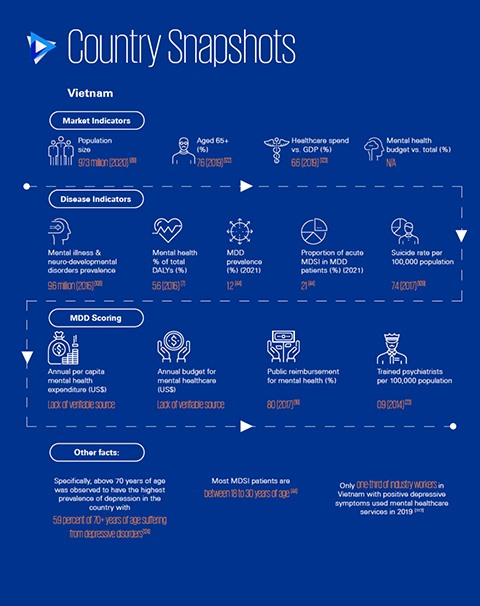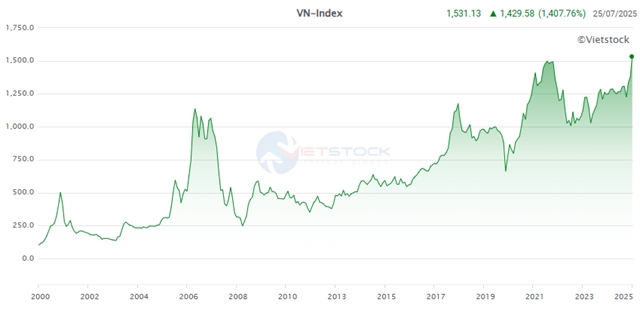

The ongoing Covid-19 pandemic has reminded us that mental health is as important as physical health. The heavy impacts of the pandemic have pushed Major Depressive Disorder to become a mutual burden of the society that requires significant efforts to improve.
The ongoing Covid-19 pandemic has reminded us that mental health is as important as physical health. The heavy impacts of the pandemic have pushed Major Depressive Disorder to become a mutual burden of the society that requires significant efforts to improve.

|
Major Depressive Disorder is a pressing issue nowadays that requires special attention from the society
According to the snapshot data in the Major Depressive Disorder (MDD) research jointly done by KPMG, Johnson & Johnson, leading healthcare practitioners and active patients voices across Southeast Asia, in Vietnam the percentage of MDD was 1.2% of the population, the percentage of MDD patients with Suicidal Ideation (MDSI) was 21% and most were between the ages of 18 and 30. In addition, people over 70 years of age were observed to have the highest prevalence of depression in the country up to 5.9%.
Vietnam has implemented significant efforts to promote mental health policies in the country. However, the budget for the mental health sector has not received much attention. Only ⅓ of the industry workers positive depressive symptoms have accessed to the mental healthcare services (according to 2019 data). Moreover, the number of trained psychiatrists is at 0.9/ 100,000 people, much lower than the WHO recommended ratio (10/100,000).
The research also shows that up to 40,000 people in Vietnam committed suicide due to depression every year, yet the prevalence rate for the disease was reported to be merely 4.9% in 2020. The main reason is because the symptoms of depression are not widely recognized. Another possibility is that people are reluctant to identify as having depression as they believe it is incurable. Even if a patient is aware that he or she has depression and actively seeks help, they do not necessarily know where to get treatment, especially when living outside the larger cities. When people attempt suicide, the first responders are emergency doctors, who are unfamiliar with MDSI, and are hence unable to accurately diagnose or administer appropriate treatments.

|
In order to address these challenges, there is a need for methods to improve human resources, infrastructure, and media to raise awareness about depression. Vietnam has implemented significant efforts to add depression into the National Health Target Programme, with the Community-based Mental Health Care (CMHC) programmed, since 2001. CMHC consists of screening, referral, treatment, management, and follow-up between primary health centres with district, provincial, and tertiary hospitals. However, only 2% of those enrolled in the programme are treated for depression. This suggests low capability at the primary care level and weak structure between primary care and higher-level hospitals. Therefore, a strong mental healthcare referral network is needed in which outpatient departments in psychiatric hospitals should be established.
Accordingly, the report bespeaks policy calls-to-action for Vietnam:
“Mental health requires more attention than ever before, especially when the COVID-19 pandemic has exacerbated the mental distress faced by many people. We believe that the report of this study outlines a mental health overview in SEA in general and in Vietnam in particular, providing policymakers and health care practitioners with some specific policy recommendations to treat and care for MDD patients to reduce the burden of this disease on the family and health care system. It is important "no one is left behind” and this motto aims to actualize the vision of "Health for all"”. Matthias Skillecorn – Managing Director of Johnson & Johnson Vietnam shared.









